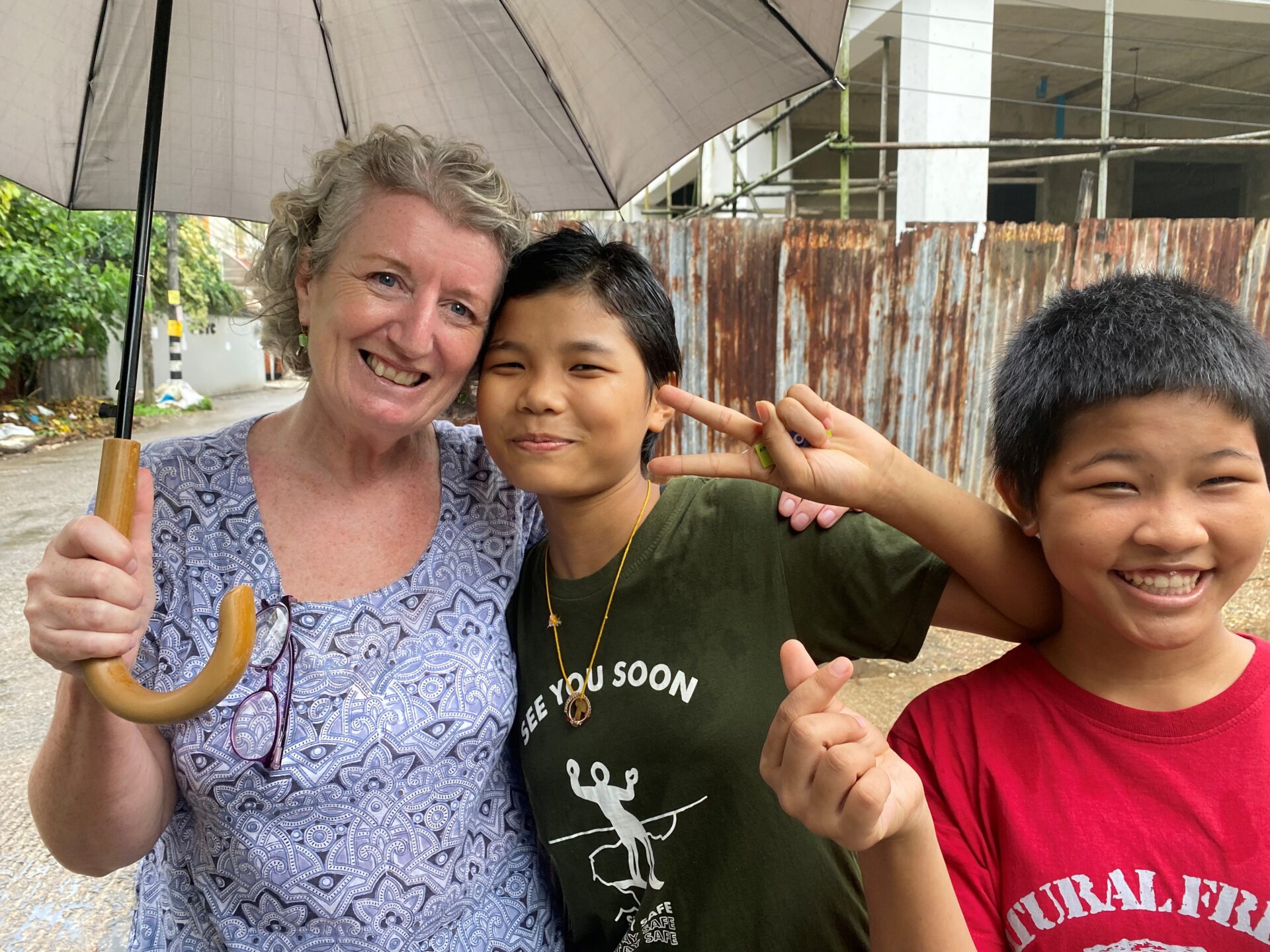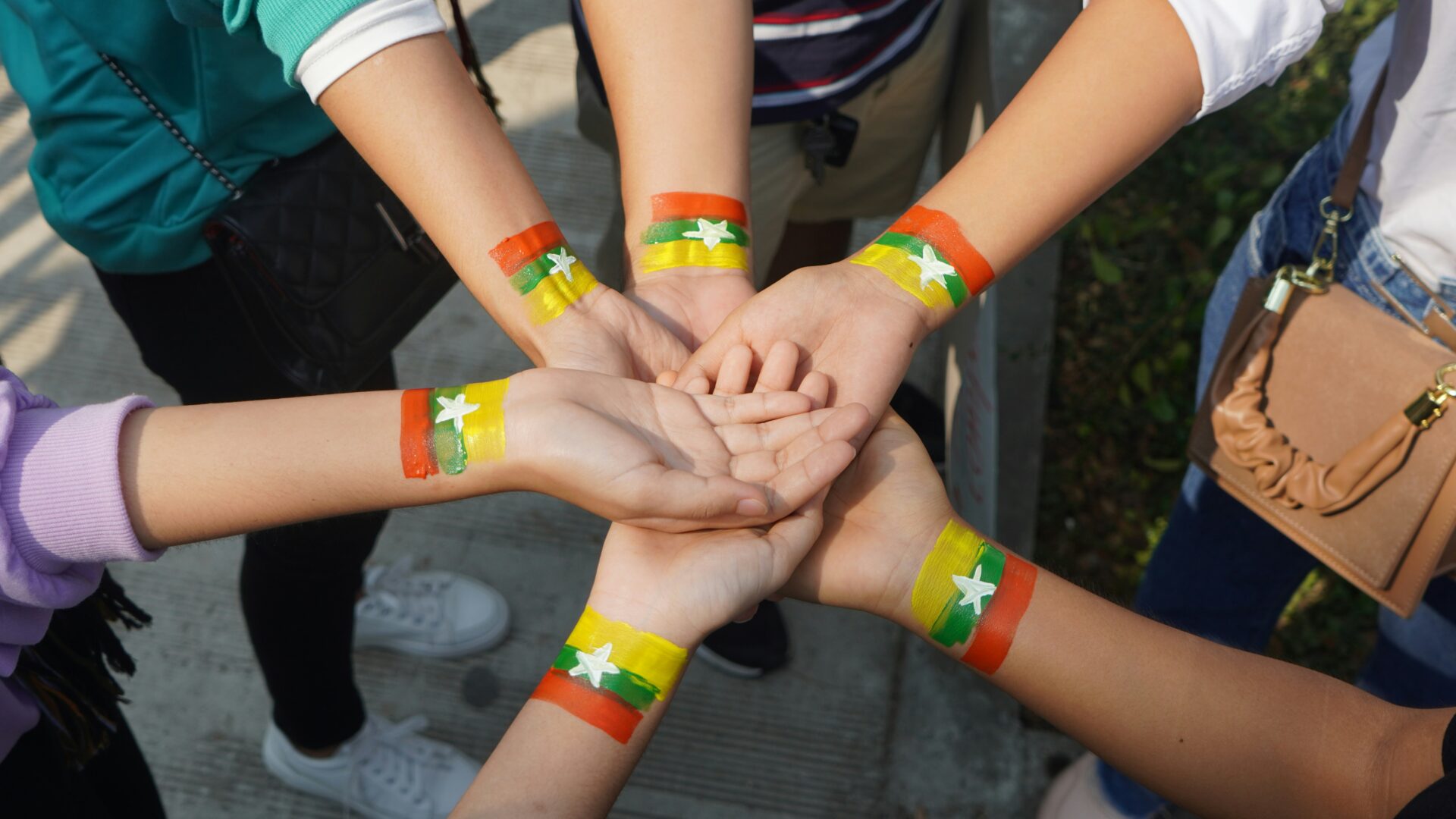The voter’s responsibility: Thoughts from Myanmar

Gillian Donoghue is from Edinburgh. After some years teaching in Scotland, she worked in Rome with the Jesuit Refugee Service and Caritas Internationalis. She is now Development Officer for Jesuit Myanmar Region.
The upcoming election in the UK will be the first I have voted in since living in Myanmar, or Burma as it is also known. I have always recognised that my right to vote is a privilege, but my time in Myanmar has left me with a deeper appreciation of the responsibility I have at the ballot box. I feel fortunate to belong to a country where I can trust in the fairness and integrity of our elections, knowing that all will respect the results. The citizens of Myanmar have never had such trust.
Just four years ago the Myanmar people were full of optimism, their country awakening to international possibilities and a democratic future after six decades of darkness and isolation from the world under a cruel military regime. In 2020 Myanmar experienced a wave of hope as the National League for Democracy (NLD), led by Aung San Suu Kyi, secured a resounding victory in the elections, to the jubilation of the people.
Despite the absence of evidence, military leaders alleged electoral fraud, then staged a shocking coup d’état three months later. Aung San and her government members were imprisoned, and remain so today, while the military claimed absolute power.

In response, the Myanmar people organised peaceful protests, only to face brutal violence and repression. Thousands have lost their lives since the coup and now Myanmar suffers a devastating civil conflict, with a collapsing economy and over twenty million people facing homelessness and hunger.
I’ve witnessed firsthand the rapid unravelling of this beautiful country and the suffering caused when democracy is dismantled by power-hungry and greedy dictators. In today’s interconnected world, the attack on democracy in Myanmar and in many other places are not such distant realities.
Closer to home, we see many competing for our votes through fake news and social media trends fuelled by disregard for the truth. Political figures driven by personal gain and ambition stoke hatred and division, deflecting blame onto the weakest and most vulnerable. Amid the noise and the lies, how can we discern the truth?
“Our vote is our power, but how do we use it wisely?”
Global issues like human rights, migration, and climate change dominate our headlines, confronting us with graphic images of desperate people fleeing war and natural disasters evoking a sense of helplessness in many of us. Our vote is our power, but how do we use it wisely?
How do we choose leaders who will combat climate change, hold oppressive regimes accountable, address forced migration’s root causes, and show compassion towards refugees?
I am a ‘cradle Catholic’ but there much about our institutional Church I struggle to accept. I am, however, proud of the social and global outreach of the Catholic Church and its care for the weakest and poorest. I have had the privilege of seeing the work of the Church in some of the poorest communities of Latin America, Africa and Asia, and I am in awe of those who live their lives putting their faith in action. The example of these people of faith inspires and sustains my own.
In the forests of Myanmar, church workers live under tarpaulins, caring for those who have fled bombs. In city slums, priests and laypeople risk imprisonment by delivering food and medicine to families with nothing. In our own cities and towns, countless acts of kindness alleviate suffering. What inspires these people to live for the good of others?
As I consider our political candidates and their pledges, I am grateful for the roadmap my faith has given me. Whether we have any faith or none, Catholic Social Teaching (CST) offers a guiding framework for living life for good and making informed choices at the ballot box. CST provides clear guidelines on society’s most complex issues, aligning with the principles I want my leaders to uphold: justice, solidarity, and human dignity.
The basic principles of Catholic Social Teaching can help us voters to navigate global challenges and prioritize leaders who advocate for the common good, promote peace, and champion the rights of all individuals, especially the most vulnerable among us.
